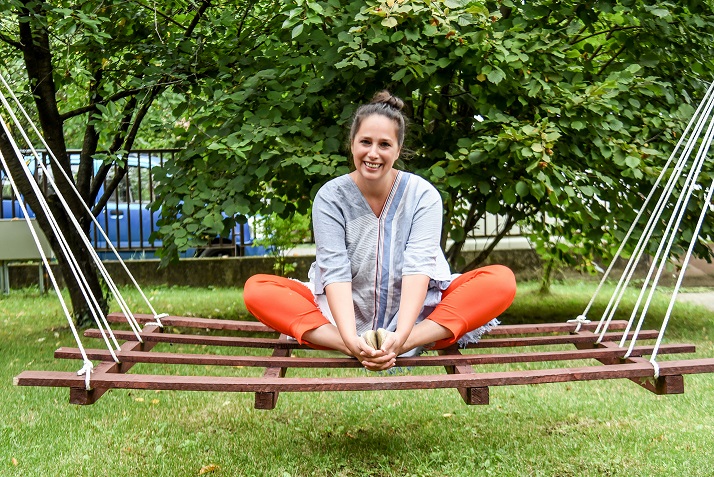Alexandra Köves, an ecological economist, and the head of the Ecological Economics Research Centre at the Corvinus Institute for Advanced Studies was our previous speaker at the Alumni Network Hungary Webinar. She is an advocate of the Degrowth movement and a devoted speaker for fair and just economics. We interviewed her about her work and research.
In simple terms, what is the movement of Degrowth about?
Degrowth promotes a shift to a just, sustainable economic and social system that moves away from the concept of constant growth. It calls for a planned reduction in resource and energy use, particularly in the over-consuming global North, to fit within the planet's limits. Degrowth involves rethinking what constitutes a good life and redistributing resources more fairly. For this, we need completely new narratives and visions, that impact all spheres of life: consumption and production, financial and monetary systems, social and health services, collective decision-making, and politics, just to name a few. Degrowth imagines a demarketised and decommodified economy where people have equal access to goods and services. Society ensures fair distribution and redistribution, work is meaningful, and we generally work shorter hours. Economic actors are driven by purpose rather than profit. To achieve such a transformation, democracy should rely on autonomy and participation, and technology should also be democratically owned and organised. So, it is not about doing the same as now but less of it, but doing things completely differently.

Can you give some examples where the concept of Degrowth was applied in real-life decision-making? What were the results?
When people ask me to describe Degrowth in reality I always answer that I can only describe the vision of it, as it does not yet exist. However, that is only true to some extent. As we live in a global capitalist system, on a large scale Degrowth is not yet with us. But on the local scale, many fantastic initiatives exist that provide us with a little glimpse into how it could be done. For example, regenerative agriculture, eco-swaraj, buen vivir, solidarity economy initiatives, local trading systems, or sharing economy solutions. Some municipalities try to move away from the usual growth-oriented mentality: Barcelona, Amsterdam, and Zagreb just to name a few here in Europe.
Can Degrowth work in developing countries, where production and consumption have only increased in the last decade?
While Degrowth is a dominantly European concept, it considers global justice perspectives. The global North has enjoyed unprecedented economic growth in the last centuries by extracting much of the resources (materials as well as human labour) from the global South. This surely needs to stop. Neither those areas/nations nor those social segments even in richer countries can “degrow” where access to resources is not ensured. They certainly need more material and energy to provide the necessary social foundations. However, the concept of development also needs to be revisited as it is unjust and does not necessarily provide a good life. Therefore, the paths of economic development need to change to enable much better living conditions for all within planetary boundaries and not just the rich 10% of the planet.

Is Degrowth an alternative when the world’s population is as high as 8.2 billion? How can growth be cut back, when the population is steadily rising?
It is quite clear that for Earth to sustain 1bn people is not the same problem as sustaining 8bn. However, this question often comes up as something that takes the edge away from the massive problem of overconsumption in the North, shifting the attention to overpopulation elsewhere. We need to be clear on one thing: globally the top 20% consumes 80% of the resources and for those in the top 20%, having too many children is not an issue as they normally live in aging populations. We need to fix that first. Moreover, the two indicators that correlate the most with birth rates are life expectancy and the educational level of women. Therefore, if we provide good health care and good education for all, together with access to basic needs provision, we are likely to see birth rates drop everywhere.
What are you currently working at? What is your latest research about?
Usually, I work with foresight methods like backcasting to figure out what such a world with Degrowth would entail and how we could get there. My main research activities now are within a large European research project involving ten institutions called MAPS which stands for Models, Assessments, and Policies for Sustainability. This is highly policy-oriented research uncovering the possibilities of concrete interventions to move toward a world where we can provide well-being for all within planetary boundaries.
